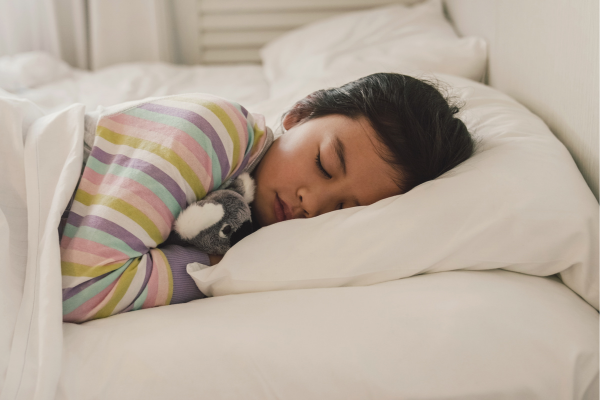By Dr. Jon Betts
Back To Sleep is a term coined to help reduce SIDS in infants, but as we send our kids back to school it is something that we can apply to our school aged kids as well. If your kids are like mine, their sleep patterns and habits get a little out of whack during the summer; late nights and late mornings (or sometimes afternoons!). Well, it’s time to get back to sleeping well and sleeping more. Here are a few tips to ensure your kids are getting the sleep they need:
- First of all, make sleep a priority. With so many things such as homework, extracurricular activities, and friends/relationships vying for their time, it is easy for our kids to get over-scheduled. Sleep tends to be the area that gets squeezed from their schedule. As parents, try to help your kids understand that sleep is essential to their overall health and well-being.
- Know how much sleep your kids should be getting. The American Academy of Pediatrics and the American Academy of Sleep Medicine recommend that children 6-12 years of age should get 9-12 hours of sleep per night and that teens should get 8-10 hours per night. These numbers may surprise you, probably because your kids may not be getting enough sleep. Without adequate sleep, kids are at risk for poor school performance resulting from irritability, poor concentration, and zoning out (symptoms similar to ADHD). Inadequate sleep can also result in medical issues such as headaches and depression.
- Help your kids establish a good bedtime routine, and try to have a consistent bedtime. Our bodies do better on a regular schedule and by getting to bed at a relatively consistent time, it is easier to fall and stay asleep. On weekends when kids may stay up later, try to have them get up within an hour or so of their regularly scheduled wake times. Some younger kids can drag bed-time out for waaaay toooo long! Don’t play those games. Be the parent, and be firm. In the long run, you and your child benefit.
- Have a policy on screen time and phones. In order to allow our brain to wind down, it is recommended that all screens – TVs, computers, video games, phones – be turned off 30-60 minutes before bedtime (it is also recommended that these be out of the bedroom at night). With your teens, be clear and intentional about rules for phones (I cannot emphasize this enough). Believe it or not, kids can waste hours on YouTube, social media, texting, and the like, often without realizing it. Do what you need to do to help your kids make good decisions. You may not be popular, but being popular is not your job.
- Be active during the day. The recommended 30-60 minutes of exercise per day will not only keep your kids physically fit, but it will also wear them out and help them sleep better at night.
- Avoid stimulants. Some kids are very sensitive to stimulants which may interfere with sleep even if consumed long before bedtime, so help your kids avoid things like caffeine and energy drinks. Teens, who often don’t get enough sleep, resort to using stimulants such as energy drinks to help them stay awake. This is a detrimental pattern to fall into, so if you notice your teen consuming energy drinks, help them find ways get the sleep they need and get off the energy drinks.
Much more could be said on sleep, but this is a good start. Remember, make sleep a priority, and as a parent, do your best to practice what you preach. It will serve your kids (and you) well! Sweet dreams!

